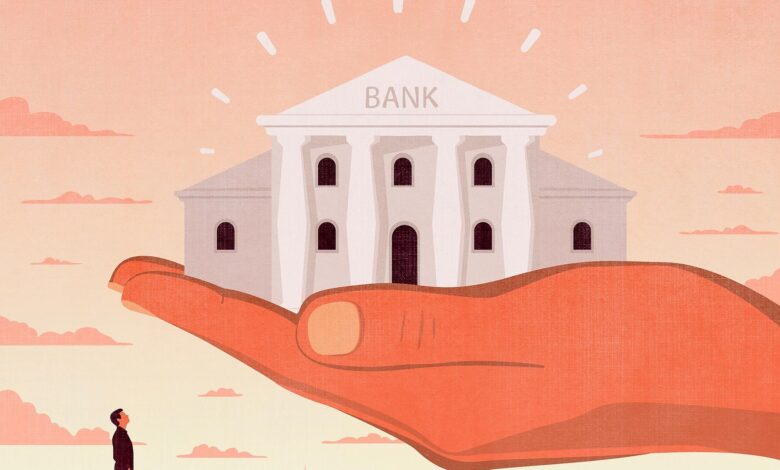Banks will go for ‘indefinite strike’ if Centre moves Banking Laws (Amendment) Bill

Hyderabad, Dec 13 (UNI): The United Forum of Bank Unions, an umbrella organisation of nine unions and associations in the banking industry, commanding 100% officers and employees, gave call for a two-day All India Bank Strike on December 16 and 17 in protest against privatisation of public sector banks in the interest of the nation and its people, the UFBU announced on Monday.
It is a patriotic struggle to save the assets of the nation from outright sale to private corporate, said BS Rambabu, convenor, UFBUs (Andhra Pradesh and Telangana).
Addressing a press conference here. Rambabu said the privatisation of public sector banks (PSBs) will jeopardise the interests of common people and backward regions of the country, adding that the bank employees and officers are prepared to fight back the government and ready to any sacrifice to safeguard the PSBs.
“Our struggle is to defend public sector banking; demand pro-people banking policies; ensure broad-based economic development of our country; ensure vibrant banking to enable a vibrant economy and protect the interest of entire workforce of the banks,” he said.
In the event of the government moving forward with the Bill in Parliament to privatise the banks, bank employees and officers are prepared to go to any extent, including ‘indefinite strike’ against privatisation of banks, he cautioned.
Rambabu said the Centre has decided to table the Banking Laws (Amendment) Bill, 2021, during the current winter session of Parliament, which enables the government to privatise the banks.
“Only after nationalisation, our Banks have become accessible to the common masses and have played a major role in the development of agriculture, small trade, small business, SSI, transport and in upliftment of weaker sections of the society,” he added.
The UFBU convenor for AP and Telangana said, “In a developing economy like ours, PSBs have to be further strengthened and expanded to accomplish the goals, aims and objectives of bank nationalisation for subserving the interests of vast masses of this country.
“In this background, attempts to privatise our banks are ‘unwarranted and counter-productive’,” he said, adding that privatisation will result in these banks and their vast resources being handed over to private hands.
Rambabu said the banks represent huge and precious savings of the people and hence, it is imperative that the government should be the custodian of the banks and the people’s money therein.
“Reaching vast population in rural areas and in the villages is an important task of our banks and if banks are privatised, this social orientation will be a casualty and the banks will tend to become urban-oriented,” he pointed out.
Way back in 2008, when the world economy was plunged into a deep financial crisis and meltdown, it was the PSBs, which helped the Indian economy to sustain, he claimed.
“We all know the efficiency of private banks, many of which have failed and closed down in the past due to mismanagement, while on the other hand, all the public sector banks are doing well and earning substantial profit.
“The only issue being confronted with the PSBs was that of huge Non- Performing Assets (NPAs), in which the major share was that of big corporate,” he said, adding that successive governments have taken initiatives such as Debt Recovery Tribunals, SARFAESI Act and IBC, but they have not yielded the desired results and therefore ultimately banks were forced to write off those loans resulting in huge losses.
This shows that it is not the nationalisation of banks, which has failed, but it is the willful default of the corporate and big business houses, which have dragged the banks into this crisis, he said even under the Insolvency and Bankruptcy Code, while bad loans have been resolved and Banks could get back some portion of the loan, it has been with huge haircuts for the Banks.
It is also a matter of reality that time and again, public sector banks have been used to bail out ailing private sector banks such as Global Trust Bank, United Western Bank, Bank of Karad, he said.
In the recent past, it was Yes Bank, which was bailed out by public sector SBI, he claimed that the private sector’s largest NBFC, IL&FS, were also bailed out again by public sector SBI and LIC.
The government claims that it is implementing various social sector loans, pension and insurance schemes such as Jan Dhan, MUDRA for unemployed youth, Swadhan for street vendors, Pradhan Mantri Awas Yojana, Pradhan Mantri Jivan Jyoti Yojana, Pradhan Mantri Jivan Suraksha Yojana and Direct Benefit Transfer Schemes such as Pradhan Mantri Garib Kalyan Yojana, Pradhan Mantri Kisan Kalyan Yojana, Atal Pension Yojana for the underprivileged sections of the society in which the major share is that of PSBs, he said.
During the pandemic period, it is the public sector banks which have been giving uninterrupted customer services, he said.
“We, therefore, are of the view that privatisation of public sector banks will jeopardise the interests of the common people and backward regions of the country and hence, we are opposed to any such retrograde move,” he added.




